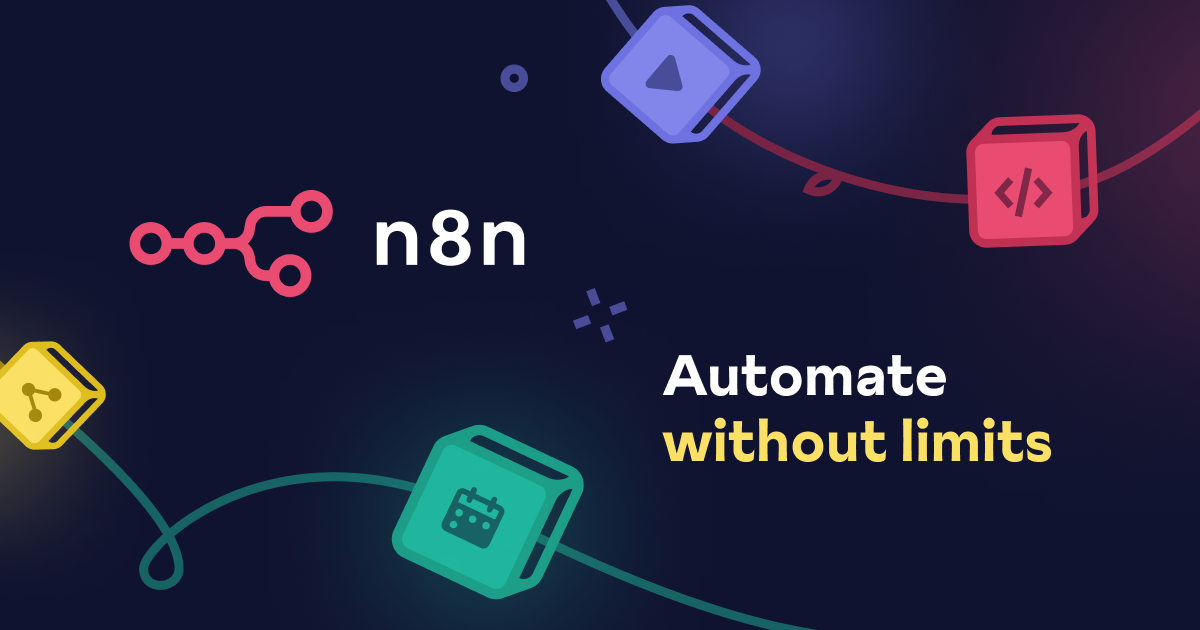ReferenceError: fetch is not defined in Node.js
Learn how to resolve the common "ReferenceError: fetch is not defined" error in Node.js and unlock the power of HTTP requests in your server-side applications.
Learn how to resolve the common "ReferenceError: fetch is not defined" error in Node.js and unlock the power of HTTP requests in your server-side applications.
The JavaScript fetch function is a powerful tool for making web requests, but encountering the "ReferenceError: fetch is not defined" error can be frustrating. This error usually pops up in two main scenarios: when using fetch in a Node.js environment where it's not available by default, or when working with older browsers that lack native fetch support. Let's explore how to resolve this error based on the cause.
Let's break down why you might be seeing the "ReferenceError: fetch is not defined" error in your JavaScript code and how to fix it.
Understanding the Error
The error message "ReferenceError: fetch is not defined" means your JavaScript environment doesn't recognize the fetch function. This usually happens for one of two reasons:
Node.js Environment: The fetch API is built-in for web browsers, but not for Node.js by default. If you're running your code in a Node.js environment (like a server-side application), you'll need to add it.
Older Browsers: While modern browsers support fetch, very old browsers might not. If you need to support these older browsers, you'll need a workaround.
Solutions
Here's how to fix the error based on your situation:
1. If you're using Node.js:
Install a fetch polyfill: The most common way to use fetch in Node.js is to install a library that provides the same functionality. A popular choice is node-fetch:
npm install node-fetchThen, import it into your Node.js file:
const fetch = require('node-fetch');
// Now you can use fetch!
fetch('https://api.example.com/data')
.then(response => response.json())
.then(data => console.log(data))
.catch(error => console.error('Error:', error));Node.js v18 and later: Starting with Node.js version 18, fetch is available as an experimental feature. You can enable it using the --experimental-fetch flag when running your Node.js script:
node --experimental-fetch your-script.js2. If you need to support older browsers:
Use a polyfill: A polyfill is a piece of code that adds missing functionality to older browsers. You can include a fetch polyfill in your HTML file. A popular option is the one provided by the GitHub Fetch polyfill:
<script src="https://polyfill.io/polyfill.min.js?features=fetch"></script>Important Considerations
Let me know if you have any more questions or need further assistance!
The JavaScript code ensures compatibility of the fetch API across different environments. It checks if fetch is natively supported. If not, it provides a polyfill for older browsers or uses the node-fetch library in Node.js. The code then fetches data from an example API, handles the response, and logs the data or any errors encountered.
// Check if fetch is already defined (modern browsers)
if (typeof fetch === 'undefined') {
// If not, we're likely in Node.js or an older browser
if (typeof window === 'undefined') {
// We're in Node.js, use node-fetch
const fetch = require('node-fetch');
fetch('https://api.example.com/data')
.then(response => response.json())
.then(data => console.log('Data from Node.js:', data))
.catch(error => console.error('Error in Node.js:', error));
} else {
// We're in an older browser, dynamically add the polyfill
const script = document.createElement('script');
script.src = 'https://polyfill.io/polyfill.min.js?features=fetch';
document.head.appendChild(script);
// Wait for the polyfill to load before using fetch
script.onload = () => {
fetch('https://api.example.com/data')
.then(response => response.json())
.then(data => console.log('Data from older browser:', data))
.catch(error => console.error('Error in older browser:', error));
};
}
} else {
// fetch is already available, use it directly
fetch('https://api.example.com/data')
.then(response => response.json())
.then(data => console.log('Data from modern browser:', data))
.catch(error => console.error('Error in modern browser:', error));
}Explanation:
Environment Detection:
typeof fetch === 'undefined': Checks if fetch is defined. If not, we need to handle it.typeof window === 'undefined': Determines if the code is running in a browser (where window is defined) or Node.js (where it's not).Node.js Solution:
const fetch = require('node-fetch');: Imports the node-fetch library.fetch request and handles the response/error.Older Browser Solution:
<script> tag to include the fetch polyfill from Polyfill.io.script.onload = ...: Ensures that the code using fetch runs only after the polyfill has loaded.Modern Browser:
fetch is already defined, the code directly uses it to make the request.Key Points:
catch() blocks to handle potential errors during the fetch process.Debugging Tips:
console.log(typeof fetch) to quickly check if fetch is defined in your current environment.console.log statements within your Node.js code to pinpoint where the "fetch is not defined" error occurs.Alternatives to fetch in Node.js:
node-fetch.Best Practices:
fetch polyfill to ensure compatibility with older browser versions that might still be in use.fetch implementation in Node.js.Additional Considerations:
fetch. You might need to use isomorphic-fetch or similar solutions to ensure fetch works correctly on both the server and client.node-fetch or any other HTTP client library you choose. This will provide type checking and autocompletion for a better development experience.| Problem | Cause | Solution |
|---|---|---|
| Error occurs in Node.js |
fetch is not built-in to Node.js by default. |
1. Install node-fetch: npm install node-fetch and then const fetch = require('node-fetch'); in your code. 2. Node.js v18+: Run your script with node --experimental-fetch your-script.js. |
| Error occurs in older browsers | Older browsers may not support fetch. |
Include a fetch polyfill in your HTML, like the one from GitHub: <script src="https://polyfill.io/polyfill.min.js?features=fetch"></script>
|
Important:
By understanding the root causes of the "ReferenceError: fetch is not defined" error, you can implement the appropriate solution and get your JavaScript code working smoothly. Whether you're building a Node.js application or targeting a wide range of browsers, make sure to choose the approach that best suits your needs and always prioritize thorough testing to ensure cross-environment compatibility. By staying informed about the latest JavaScript features and best practices, you can confidently tackle this error and build robust web applications.
 How To Fix ReferenceError: fetch is not defined | In this blog post, we'll tackle the common issue of encountering a "ReferenceError: fetch is not defined" error when working with JavaScript, specifically Node.js. This error typically occurs when you try to use the fetch API in a Node.js environment. While the fetch API is nativel...
How To Fix ReferenceError: fetch is not defined | In this blog post, we'll tackle the common issue of encountering a "ReferenceError: fetch is not defined" error when working with JavaScript, specifically Node.js. This error typically occurs when you try to use the fetch API in a Node.js environment. While the fetch API is nativel... Nodejs- ReferenceError: Fetch Is Not Defined, And How To Solve It? | With the new launch, Fetch is now available as an experimental feature in Node v17. Suppose you want to try its trial version before the major release; download and upgrade the node.js version to 17.5. Know more
Nodejs- ReferenceError: Fetch Is Not Defined, And How To Solve It? | With the new launch, Fetch is now available as an experimental feature in Node v17. Suppose you want to try its trial version before the major release; download and upgrade the node.js version to 17.5. Know more How do I use native fetch when running n8n with node.js 18 ... | Describe the issue/error/question I’d like to use the native version of fetch as one would with node.js version 18. Is this supported? I’m running n8n with node.js 18 set via NODE_VERSION. Also tried setting NODE_FUNCTION_ALLOW_BUILTIN=https,fetch What is the error message (if any)? “ReferenceError: fetch is not defined” when using the Code node. Information on your n8n setup n8n version: latest as of 3/13/23 Database you’re using (default: SQLite): sqlite Running n8n with the executi...
How do I use native fetch when running n8n with node.js 18 ... | Describe the issue/error/question I’d like to use the native version of fetch as one would with node.js version 18. Is this supported? I’m running n8n with node.js 18 set via NODE_VERSION. Also tried setting NODE_FUNCTION_ALLOW_BUILTIN=https,fetch What is the error message (if any)? “ReferenceError: fetch is not defined” when using the Code node. Information on your n8n setup n8n version: latest as of 3/13/23 Database you’re using (default: SQLite): sqlite Running n8n with the executi... Node 18 Is Now Available in Beta for Actions - Auth0 Community | Try Node 18 in beta with global long-term support (LTS). Read more… ✍🏻 Brought to you by Darin LaFramboise
Node 18 Is Now Available in Beta for Actions - Auth0 Community | Try Node 18 in beta with global long-term support (LTS). Read more… ✍🏻 Brought to you by Darin LaFramboise Fetch is not defined on production - Support - Netlify Support Forums | I am working on a project using the ShopifyStorefrontApi as well as the shopify-buy npm package. Netlify functions work flawlessly on the localhost, but once everything is deployed I am getting a reference error that fetch is not defined. When the create-cart function gets executed, which is on first page load, I store the data in localStorage. But instead i can see what error it returns in the localStorage: {"errorType":"ReferenceError","errorMessage":"fetch is not defined","trace":["Referenc...
Fetch is not defined on production - Support - Netlify Support Forums | I am working on a project using the ShopifyStorefrontApi as well as the shopify-buy npm package. Netlify functions work flawlessly on the localhost, but once everything is deployed I am getting a reference error that fetch is not defined. When the create-cart function gets executed, which is on first page load, I store the data in localStorage. But instead i can see what error it returns in the localStorage: {"errorType":"ReferenceError","errorMessage":"fetch is not defined","trace":["Referenc...